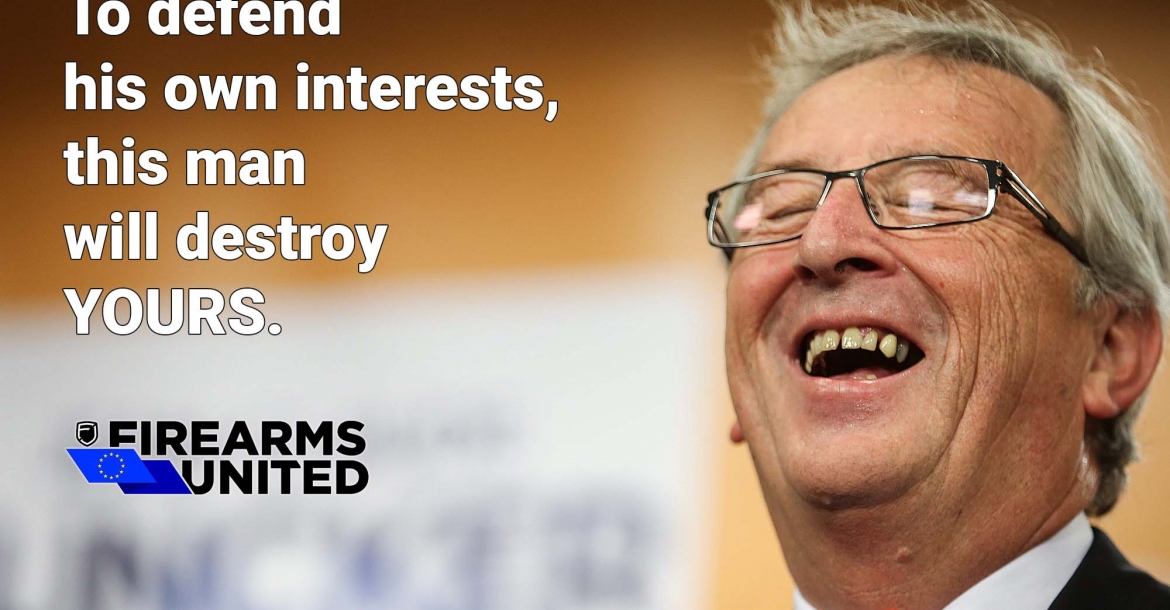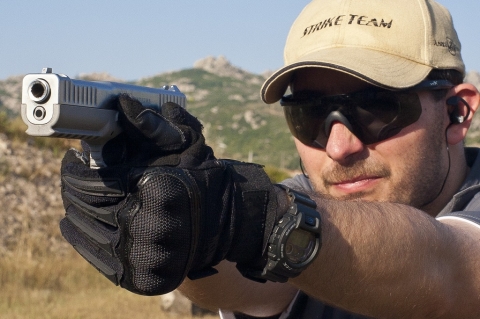EU Gun Ban: on our way to Thermopylae?
The latest updates from the ongoing trilogue concerning the European firearms directive amendment procedure, as provided yesterday by rapporteur Vicky Ford, are not positive: our community must gear up at once for the February and March votes at the European Parliament!
EU Gun Ban: on our way to Thermopylae?
And so came November 29, 2016, and with it came Vicky Ford's update concerning the ongoing trilogue about the amendment procedure to the European Firearms Directive – now in-famously known as the EU Gun Ban.
As we already knew, the Members of the European Parliament are under an enormous amount of pressure by the European Commission and by the governments of many Member States – France, Germany and Italy being the leaders – and as it was easy to foresee, her speech was not much different from what she declared during the November 16th conference at the European Parliament.
Unless something major happens, the trilogue is likely to end for good with the next meeting, on Monday, December 5, 2016; and it should wrap up with a substantial agreement with the "compromise position" of the Council of the European Union.
Category A7

Not all Category B7 firearms will be banned
Not all kind of Category B7 firearms – those patterned after, or similar to, a full-automatic firearm - will be banned. With a substantial exception: demilitarized firearms (those full-automatic firearms converted to semi-automatic operation for civilian sales) will be subject to a grandfathering clause.
This means that their users will still be able to own, use, grandfather, or sell them: but no other ones will be legal to sell after the directive is implemented by the Member States.
"High Capacity" magazines
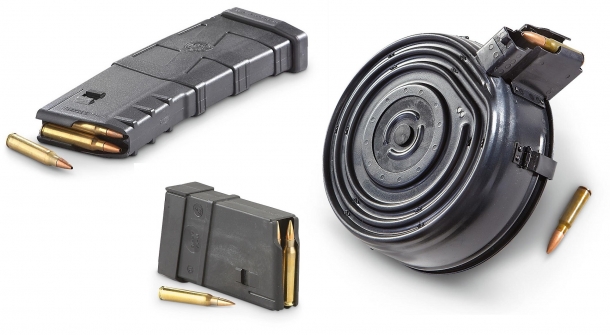
Magazines are the issue here
There will be limitations on magazines: whoever isn't covered by the planned "exception for sport shooters and collectors" will not be able to purchase or use magazines above a certain capacity after the directive is implemented by the Member States.
Expiry dates for gun licenses and medical check-ups

Here comes the doctor...
Vicky Ford made no mention of a specific mandated expiry date for gun licenses, but a mandatory renewal of all licenses every five years in all Member States could be on its way. This may not be a problem in Countries (like Italy) where that limit is already in the books, but could be in those Countries where there is no such mandatory expiry date.
As far as medical tests are concerned, Vicky Ford declared:
The Parliament is pressing for its language for member states to have monitoring systems, which includes the assessment of relevant medical and psychological information in accordance with national law, and which may be on a continuous or non-continuous basis.
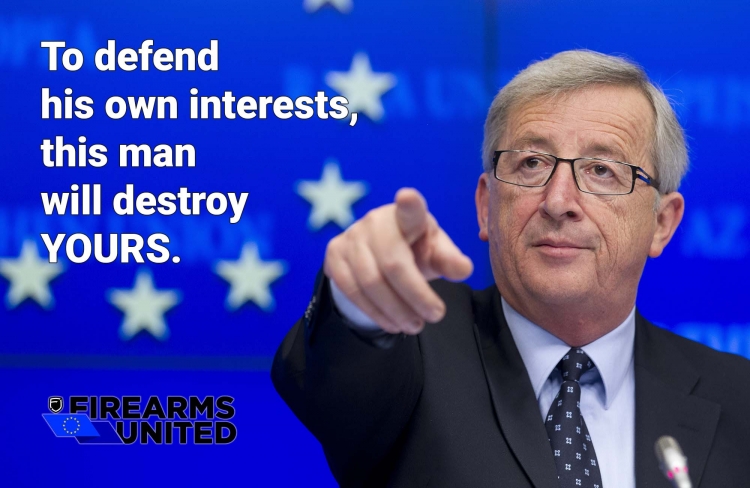
Can we be happy? Not by a long shot!
No positives, many negatives
This "compromise" agreement may indeed sound better than the all-out ban proposed by the European Commission... and yet, it's by no means acceptable.
In certain Member States (such as, to say, Italy), a non-restrictive implementation of such amendments to the European firearms directive in the national law would not change the current status (exception made for the ban on demilitarized firearms), but politicians can not be trusted, as they will try to slip in further restrictions. And this is true in almost all Member States.
In some eastern European Member States, the ban on demilitarized firearms will badly hurt sport shooters, as those former government arsenal firearms converted to semi-automatic are the only ones cheap enough to be affordable to all shooters. Demilitarized firearms are also popular in other Member States, and are generally distributed by small-to-medium enterprises (SMEs) that are likely to go bankrupt.
Some Countries that do not have a continuous or non-continuous medical or psychologic check-up system for gun owners will have to implement it, at a great economic cost and imposing more bureaucratic burden to the governments, the public administrations, and the shooters.
Countries such as Czech Republic, Slovakia, Hungary and Poland already announced that they will simply not comply – and Finland and the Baltic States might as well follow suit. And Switzerland is willing to hold a referendum vote to leave the Schengen Area in order to remain free of all restrictions on law-abiding firearms and their owners.
And how could restrictions on magazines be managed at all?
Medical monitoring system

Medical check-ups: another big mess ahead
What is the likely mandatory expiry date for gun licenses? Maybe five years, as leaked multiple times over the past months? Unknown for certain so far, but very likely.
And what would be the criteria for the release of medical certifications? Those Countries that already have a system in place do not see mass shootings or gun-related accidents every day, and yet they the checks they implement are not too strict. But it's no mystery that certain politicians and bureaucrats in all Member States can't wait to add more red tape to reduce the number of gun licenses as much as they can – so much indeed that, as Mr. Alain Alexis suggested, whoever wears glasses may be refused a new license or a renewal.
If psychiatrical evaluations should be introduced, given the current canons of psychiatry and the high level of implicit stress in modern life, basically everybody would be diagnosed with a mental illness and thus barred from owning firearms – even more so if the evaluations were to be based on the controversial DSM-5, the latest edition of the Diagnostic and Statistical Manual of Mental Disorders.
Sport shooters, Category A7 firearms, and exemptions
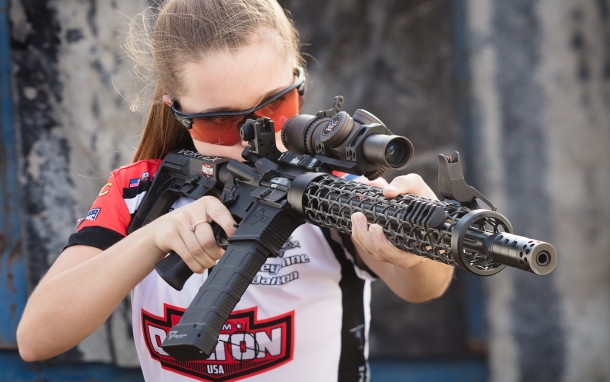
What will qualify a gun owner as a "sport shooter"?
All Category B7 firearms will become A7 (banned) if a high capacity magazine is inserted.
But what will define "sport shooters" and "collectors" who are supposed to be exempt from the prohibition? Are the European Union or the Member States going to impose mandatory club or shooting federation membership, or mandatory participation to official competitions?
Why recreational shooters (= free European citizens) with official gun licenses should not be allowed to practice leisure shooting with any type of firearm and magazine?
And how can we trust politicians? It's likely that many Member States will try to implement a restrictive view of the "exception" (if any at all), or of the A7 classification. As in: they may decide that every A7 firearm that is even just hypothetically compatible with a "high capacity magazine" is now a banned firearm. And this would mean a carpet ban on all semi-automatic firearms, including the "politically correct" ones.
Magazines (again)...
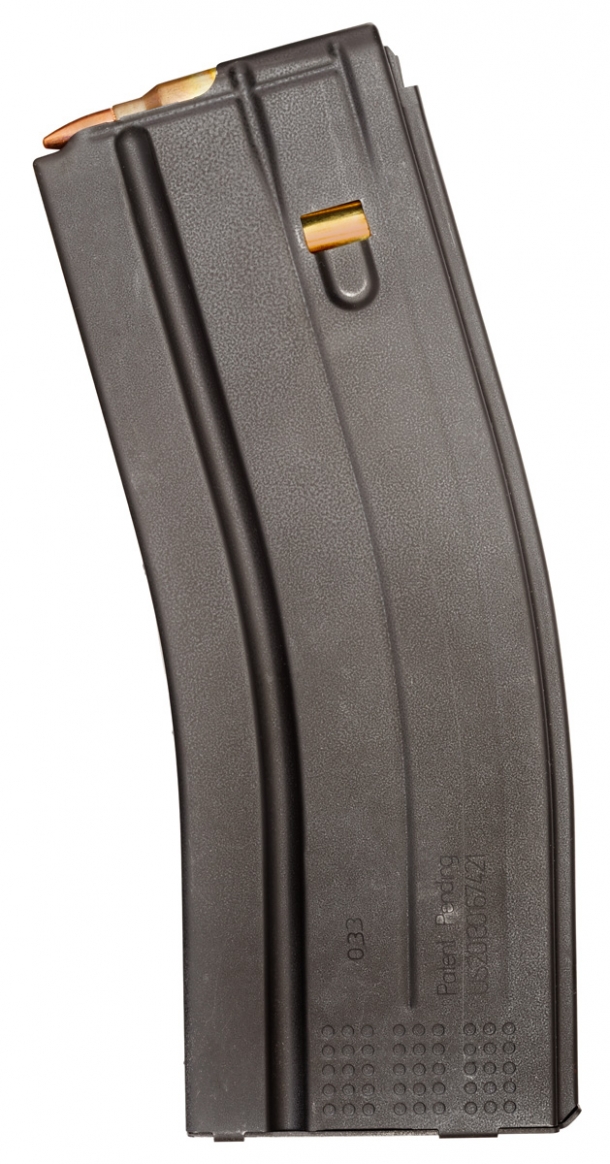
Magazine limitations make no sense at all!
If the Council text hasn't been changed during the trilogue, and if the provisions about magazines are stuck to the state they were months ago, we are heading towards a disaster:
- Magazines will be available to gun license holders only, and a shooter will only be entitled to purchase magazines usable in "already owned" firearms
- The slated magazine capacity limit for those gun owners who will not be covered by the "sport shooter exemption" should be 20 rounds, but other Council documents reported a limit of 20 rounds for handguns and 10 rounds for long guns
The norm will not be retroactive, because that would be a mess to implement. And then again, it will be a mess to implement regardless: there are millions of magazines around in Europe, they can easily smuggled into the EU in a suitcase or a mail package, and they're mass-manufactured items of metal or plastic with many interchangeable components and no serial markings for traceability, so they are basically anonymous and untraceable.
Day of betrayal...
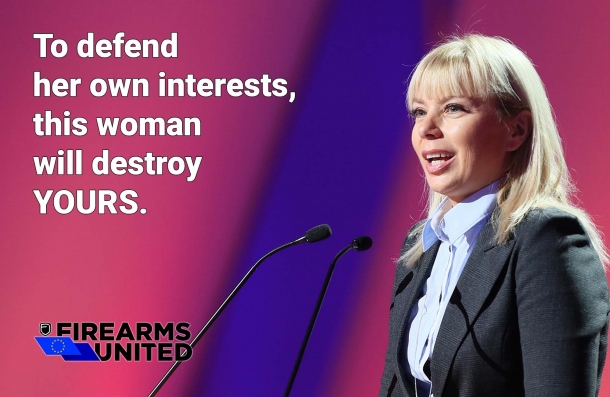
Elżbieta Bieńkowska - European Commissioner for Internal Market, Industry, Entrepreneurship and SMEs
As hard to swallow these news could be, it would be just as hard to state that Vicky Ford sold us out or that the MEPs ignored the messages they received following Firearms United's latest call to action.
According to the information received by the Firearms United network itself, many external factors came into play in the past days. First of all, Vicky Ford's position became weaker and weaker: during the campaign for the United Kingdom European Union membership referendum of June 2016, Vicky Ford sided on the "Remain" field.
Following the victory of Brexit, which is slated to start next year, Vicky Ford has been forced to wrap the dossier up as soon as possible with whatever compromise, otherwise in the coming months she could have been forced to accept even stricter limitations to law-abiding gun owners.
Not only did the European Commission exert a terrible amount of pressure in the past days – with the President of the European Commission Jean-Claude Juncker more or less subtly accusing whoever opposed or "watered down" the EU Gun Ban plans of being "anti-European" – but so also did many Member States: governments lobbied parties to push the MEPs at the trilogue into acceptance of the Council's proposal.
Among those Member States, the main sponsor of restrictions is reported to be France.
Current French Prime Minister Manuel Valls is rumored to be on the verge of resignations as the designated Presidential candidate for the Socialist Party for the upcoming April 2017 elections; current French Minister of Home Affairs Bernard Cazeneuve – who in the past months proved to be a staunch enemy of individual gun ownership – could replace him for the first four months of 2017.
Manuel Valls, Bernard Cazeneuve and current French President François Hollande are all socialists, and the French Socialist Party is deeply in crisis following the disastrous outcome of the five years of the Hollande Presidency. Cazeneuve may thus be looking for a last-minute victory to boast during the Valls campaign.
Demilitarized weapons will be banned
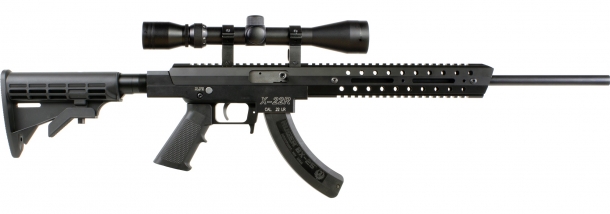
For some kind of firearms, the application of the restrictions on magazines will prove a real hell for the Member States
Despite the ostensible defeat, the increasing popularity and influence of the Firearms United network was also a factor.
As previously stated, and according to some solid intelligence gathered by Firearms United and by GUNSweek.com, the exponential growth of what could become a "European NRA" is becoming a nightmare for many politicians and bureaucrats in the European Union and in the Member States. They thus hurried to pass "something, anything", as minimal as they may perceive it, in order to prevent an all-out defeat at the hands of the evil "Gun Lobby".
...or day of defeat?
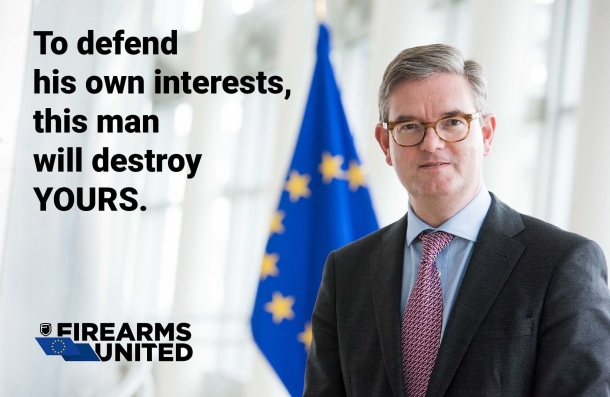
Julian King - European Commissioner for the Security Union
Despite these news, it must be clear to anyone that the confrontation in defense of the European citizens rights is not over yet.
After the trilogue ends, the European Parliament will have to vote the document twice: the IMCO committee will vote in February, while the Parliament as a whole will vote at the plenary in March.
Particuarly at the plenary there is plenty of room for improvement, as 70 MEPs are enough to introduce amendments and to modify the text.
According to our informations, at least two groups at the European Parliament (ALDE and EPP) are strongly opposing any and all restrictions, and they alone would be enough to propose amendments.
On our side, we also seem to have a good portion of the EPP and even some members of the Socialist and Democrat group.
The Firearms United network is preparing a strong political response as we speak – but it will need backing from all gun owners from around Europe. Their latest call to action is still valid: outspoken and open E-Mails to all MEPs detailing our opposition to any and all restrictions will help to strenghten and consolidate the opposition front at the European Parliament, since there was no margin during the trilogue.
Plus, even after the passage of the amendments – whatever they might be – the Member States will have fifteen months to implement them into national laws, and there will be more room for fighting.
It's not yet the time to give up the fight, or the European Commission will seize the opportunity to force the European Parliament into acceptance of even tighter prohibitions.
Whenever the legislators endeavor to take away and destroy the property of the people, or to reduce them to slavery under arbitrary power,
they put themselves into a state of war with the people,
who are thereupon absolved from any farther obedience, and are left to the common refuge which God hath provided for all men against force and violence.John Locke, Second Treatise of Government (1690)

EU Gun Ban: on our way to Thermopylae?
Click here to read and follow Firearms United's call to action

